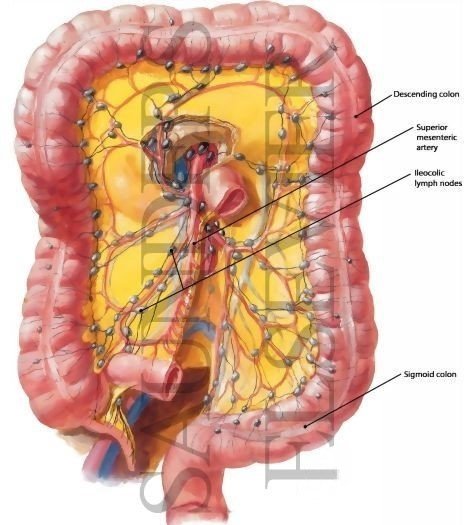Mesenteric Lymphadenitis: An Overview Mesenteric lymphadenitis is an inflammation of the lymph nodes, which are small, round, or bean-shaped clusters of cells. This condition specifically affects the lymph nodes located in the mesentery, the membrane connecting the bowel to the abdominal wall.
Typically, an intestinal infection, such as a virus, triggers mesenteric lymphadenitis, also known as mesenteric adenitis. It predominantly impacts children and adolescents.
Unlike appendicitis or intussusception—a condition where one segment of the intestine telescopes into another—mesenteric lymphadenitis often resolves without intervention.
Symptoms The symptoms of mesenteric lymphadenitis may include:
- Abdominal pain, frequently on the lower right side, although it can be more diffuse.
- Sensitivity in the abdominal region.
- Fever.
- Swollen mesenteric lymph nodes.
Additional symptoms based on the underlying cause may encompass:
- Diarrhea.
- Nausea and vomiting.
Seeking Medical Attention Abdominal pain is a common complaint among children and teenagers, making it challenging to determine when to consult a doctor.
Immediate medical attention is advised if a child experiences:
- Acute, intense abdominal pain.
- Abdominal pain accompanied by fever.
- Abdominal pain along with diarrhea or vomiting.
- Abdominal sensitivity upon touch.
- Stools that are bloody or maroon in color.
Furthermore, seek medical advice if a child’s abdominal pain persists and is accompanied by:
- Altered bowel movements.
- Decreased appetite.
- Sleep disturbances.
Causes The primary cause of mesenteric lymphadenitis is often a viral infection like gastroenteritis, colloquially referred to as the stomach flu. This infection leads to the inflammation and enlargement of lymph nodes within the mesentery.
Other potential causes include bacterial infections, inflammatory bowel diseases, and lymphoma.
Risk Factors Infections that result in the inflammation and enlargement of lymph nodes within the mesentery increase the likelihood of developing mesenteric lymphadenitis.
Risk factors for this condition include:
- Viral or bacterial gastroenteritis.
- Inflammatory bowel diseases.
- Lymphoma.
Please let me know if you need any further adjustments or additional information.


